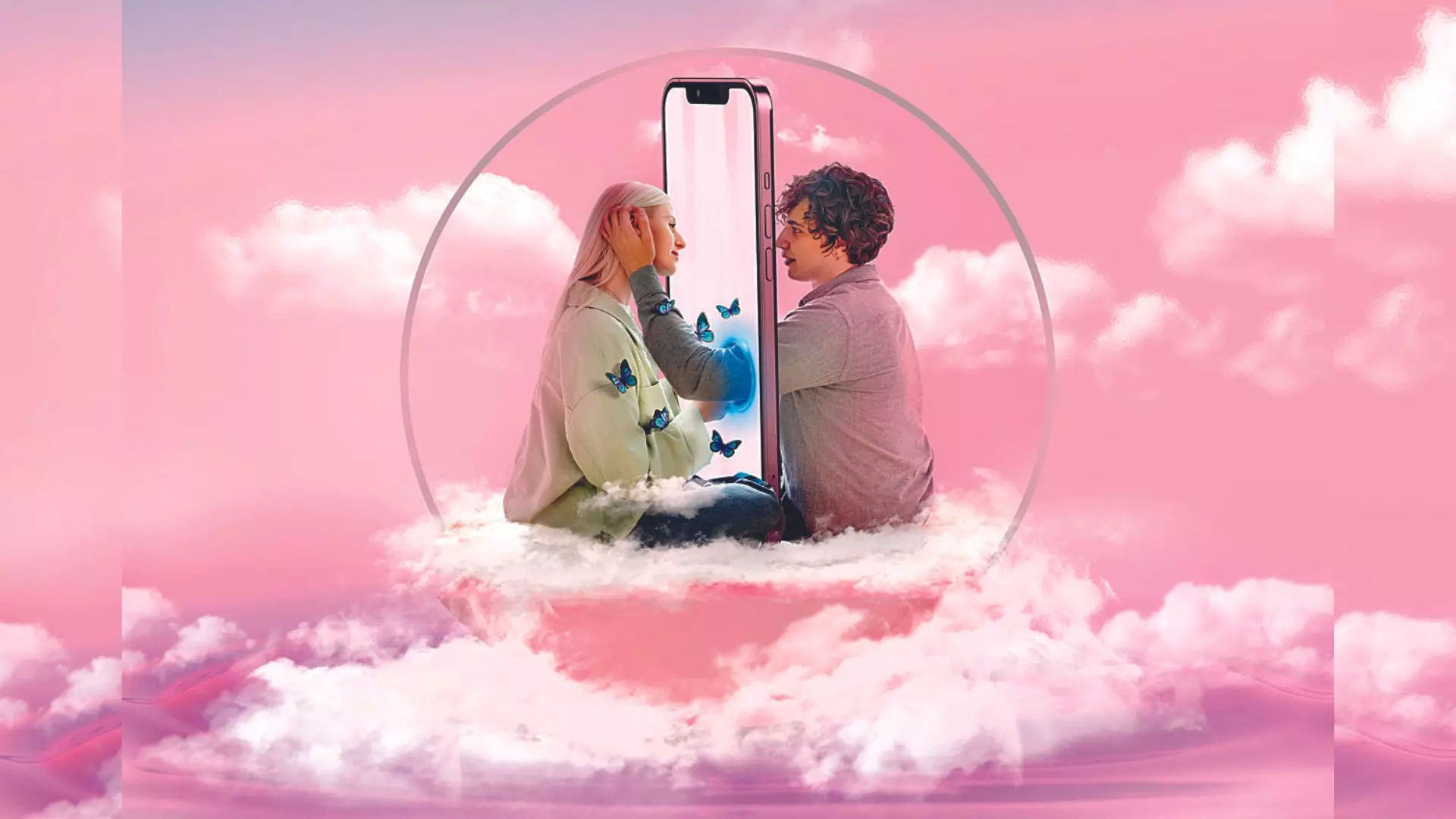Gen-Z Redefine Love in Digi Age

In the digital age, love and courtship have been transformed by social media, hookup culture, and evolving societal norms. For Generation-Z (born between 1997 and 2012), these dynamics have reshaped the landscape of relationships. Unlike previous generations, for Gen-Z digital connections often precede face-to-face meetings. Recent data from the Pew Research Center reveals that 19% of Generation Z
members have experienced polyamorous relationships, far surpassing the rates among Millennials (10%) and Gen-Xers (7%). These statistics highlight how Gen-Z is reshaping relationship norms and exploring diverse forms of connection in the digital age.
Digital Deception
Navigating the world of love in the digital age requires new abilities and awareness. Scrolling through Instagram, you'll see photos and videos of ‘perfect couples’ on romantic vacations, publicly expressing their love. This forces others to share their relationships online due to the fear of missing out (aka FOMO). People share details of birthdays, trips, anniversaries, and even everyday events like grocery shopping. This can lead to tension and pressure in the relationship. While these posts can inspire, they may also create false hopes, distorting views on love and relationships. Social health advocate, matchmaker and relationship coach Radhika Mohta feels social media rarely exposes silent treatments, uncanny arguments, and raw, unfiltered moments of a relationship. “It doesn't portray what intimacy looks like or the hard work and compromise that goes into maintaining a healthy relationship. When you constantly see the perfect lives of couples online, it gets easy to forget that everyone behind the screen has a mundane life,” says Mohta. Love is not always glamorous or picture-perfect.
Swipe Syndrome
The commonality of dating apps is that they provide Gen-Zers with a wide range of potential partners to pick from. But it comes with pitfalls of superficial connections and ghosting. Brenden Mathew, a UI/UX designer thinks social media is a double-edged sword.
“Fortunately, neither my partner nor I have been significantly influenced by it. However, I do share positive online findings with my partner that I believe can strengthen our relationship.” Mohta warns that when one operates from a case of loneliness and scarcity mindset, we set ourselves up for red flags. “The optionality on dating apps is insane but many people are low on accountability. It's mainly because they have limitless access to disposable profiles that they can choose from,” she adds.
In the Gen-Z “hookup culture” casual encounters are common but deeper emotional connections take a back seat. People 'switch off' their emotions, focusing more on physical attraction than building lasting bonds.
According to YPulse, which surveyed 13- to 39-year-olds, only 34% of Gen-Z have been in a committed relationship, while 29% have never experienced one. Many for situationships or other in-between relationship statuses. Specifically, 20% of Gen-Z has engaged in situational relationships, highlighting its prevalence among young adults navigating modern dating dynamics.
Scouting Love
“'Going to find love on dating apps is as good as breaking your head on the wall; there is little payoff,” says Khushi Darji, a commerce student. Many prefer casual relationships over traditional commitments, according to Bertille Fernandes, a BMS graduate from Mumbai. “Hookup culture has made it easier for people to figure out what they want without rushing into relationships,” Fernandes adds.
Mathew highlights a key downside of hookup culture “having multiple partners or flings can lead to comparisons that negatively impact your current relationship.” Casual relationships often exhibit a recurring pattern where individuals tend to seek an exit rather than actively resolve issues through clear communication.
Modern Situationships
Casual dating in Gen-Z has given rise to the concept of “situationship” a term that describes the ambiguous space between friendship and relationship. While ‘situationships’ provide freedom, they yearn for autonomy and a break from traditional relationship standards. As a result, relationships that do form are often based on mutual respect, communication, and understanding rather than societal expectations. In this way, Gen Z is revolutionizing the way we think about love and relationships.
In 2023, Tinder identified ‘situationships’ as a major trend, noting a 49% increase in mentions from January to October. These relationships, defined as more serious than friends with benefits but less than casual dating, appeal to 1 in 10 18–25-year-olds seeking relationships with less pressure. Casual relationships can enhance self-awareness, helping people understand their true wants and needs in partner and future relationships. The freedom to date multiple people simultaneously can provide diverse experiences, enriching one's perspective on relationships and intimacy. “I'd suggest trying casual relationships first. If you eventually fall in love, you can then confess and see where it leads. In traditional relationships, there's a higher chance of someone getting hurt,” opines Bertille.
Flexible Intimacy
Casual relationships involve fewer social responsibilities, such as meeting each other's families, attending every event together, and continuously planning events. It allows people to gain insight into their tastes, desires, and boundaries without the constraints that traditional relationships frequently impose. Individuals can enjoy companionship and intimacy without the intense emotional investment required in serious relationships. This can reduce the pressure and stress associated with a committed relationship. “Balancing my work commitments proved challenging in traditional relationships, as I often struggled to accommodate the other person's needs and desires,” says Shivam Tiwari, a sales optician. Today’s youngsters are expressing modern love that balances independence and emotional depth while challenging conventional expectations.
Luv Bytes
19% of Gen-Z members have experienced polyamorous relationships, surpassing millennials (10%) and Gen-Xers (7%) (Pew study)
Only 34% of Gen-Z have been in a committed relationship and 29% have never experienced one (YPulse survey)
20% of Gen Z has engaged in situational relationships
It doesn't portray what intimacy looks like or the hard work and compromise that goes into maintaining a healthy relationship.” — Radhika Mohta, matchmaker & relationship coach

